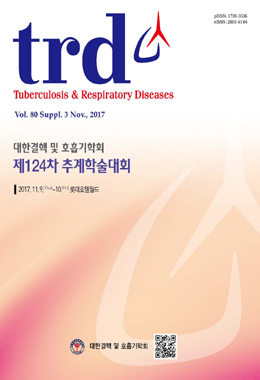Background: We conducted this study to identify regulatory variants in cancer-related pathway genes which can predict clinical outcomes of chemotherapy in advanced NSCLC, using a comprehensive list of regulatory SNPs prioritized by RegulomeDB.
Methods: A total of 509 potentially functional SNPs in cancer-related pathway genes were evaluated. The SNPs were analyzed in a discovery set (n=198), and an independent validation set (n=181). The associations of the SNPs with chemotherapy response and overall survival (OS) were analyzed.
Results: In the discovery set, 95 SNPs were significantly associated with clinical outcomes. Among the 95 SNPs, only rs10414193A>G in the intronic region of ARID3A, an eQTL for LKB1, was consistently associated with chemotherapy response and OS in the validation set. In combined analysis, the rs10414193A>G was significantly associated with worse response to chemotherapy (adjusted odds ratio=0.63, 95% CI=0.47-0.85, P=0.002), and with worse OS (adjusted hazard ratio=1.25, 95% CI=1.08-1.45, P=0.004). Luciferase assay showed a significantly higher LKB1 promoter activity associated with rs10414193G allele compared with rs10414193A allele (P=0.0009).
Conclusions: Our results suggest that rs10414193A>G may be useful for the prediction of clinical outcomes of chemotherapy in advanced NSCLC.


